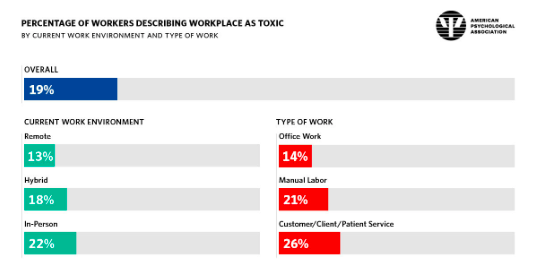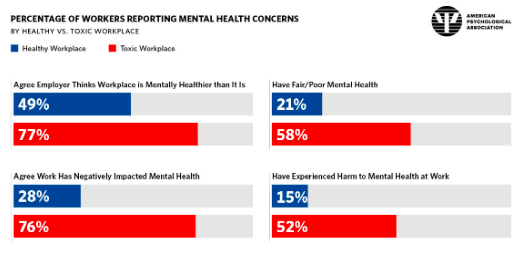Brief • 4 min Read
Three of the biggest U.S. banks – JPMorgan Chase, Wells Fargo, and Citi, made a cumulative $22.3 billion in profit last quarter, a hefty jump from the same period the previous year, and all of the earnings were higher than analysts had expected. Yet, in our America This Week survey, fielded from July 14th to 16th among 2,039 Americans, more than two-thirds of Americans remain concerned about the solvency of U.S. banks (68%, +2%-pts from early March) and the security of their deposits (63%, +4%-pts). So it seems that until The Fed is done with rate hikes, America’s financial pessimism will hang around.
Quick fun fact: Did you know Sesame Street is more than Elmo? Check out our CEO John Gerzema’s conversation with Sesame Workshop’s EVP CMO and Chief Brand Officer Samantha Maltin:
Four new Harris Polls caught our eyes this week: A recent APA/Harris Poll finds many employees stuck in toxic workplaces. Also, Americans are steadily racking up pickleball injuries. More consumers demand sustainable shopping. And finally, American patients need to be made aware of the extent of sharing their sensitive health data.
You can download the new ATW monthly summary tabs and June deck here.
Employers, Don’t You Know You’re Toxic: APA-Harris Poll
Our latest survey with The American Psychological Association, the 2023 Work in America Survey in U.S. News & Global Report, finds many Americans embroiled in toxic workplaces.
- Nearly a fifth (19%) of employees say their workplace is somewhat or very toxic, with more in-person and customer/client/patient service workers saying so:

- More than a quarter (28%) have witnessed negative slights, insults, or jokes that devalued someone’s identity or negated their thoughts or feelings based on their identity or background. Over a fifth say they have experienced harassment at work in the previous year (22% v. 2022: 14%) or witnessed discrimination (22%).
- Toxicity’s hit to employee mental health: More than half (52%) of those who reported a toxic workplace felt work had harmed their mental health, compared to (15%) of those who said a healthy workplace:

Takeaway: “The number of individuals who report experiencing a toxic workplace without protection from harm is troubling,” said Arthur Evans Jr., APA’s chief executive officer. “No one should feel fear at work. It is clear there is much work to be done to foster a positive work environment for all workers in this nation,” he said in an association news release.
Pickleball’s Not Only Noisy, It’s Dangerous: Orlando Health-Harris Poll
Pickleball is a hot trend, and it’s getting folks exercising who last became more active in a long time. But it’s also racking up injuries – both overuse type and acute traumas – which players seem happy to ignore, according to a recent poll with Orlando Health, as covered by HealthDay and U.S. News & Global Report.
- We found that compared to three years ago, nearly half (46%) of Americans prioritize their physical activity more today, with similar numbers also focused on their health habits and goals (45%).
- Yet, in a new Harris survey with Orlando Health, pickleball mania has brought people back to exercise, and these players are forgoing care when they hurt their knees, wrists, and rotator cuffs. Nearly (50%) of people say it’s not worth seeing a doctor for a sports injury they think will probably heal on its own.
- About one-third of people reported avoiding sports or a hobby because of a nagging injury.
- And about (44%) of respondents said it was too much work to make a doctor’s appointment for an injury that wasn’t too painful.
Takeaway: In general, Dr. Luis Gandara, a specialist in sports medicine at Orlando Health Jewett Orthopedic Institute, recommends that people stay active, but for those restarting, he too recommends seeing a primary care doctor first. “Always start slow and go slow,” Gandara said. “If you try to get into an activity too fast, too quickly, that’s where your chances of getting an injury or having an overuse injury will start presenting.”
The Next Consumer Demand, Sustainability: Retail Brew-Harris Poll
Rising climate concerns are shaping many consumers’ perceptions and beliefs. According to a new Harris Poll with Retail Brew, they are having a downstream effect on how the broader retail ecosystem behaves.
- Two-thirds (65%) of Americans have purchased a sustainably made item at least once in the past year, and more than three in five (63%) said they must shop at retailers that prioritize sustainability.
- However, more than four in five (81%) Americans agree it’s challenging to shop sustainably when the prices of sustainable goods are higher, and most retailers aren’t prioritizing sustainable practices (74%).
- Cut the greenwashing: More than two-thirds (69%) believe greenwashing is an issue in retail marketing, leading to half of shoppers (48%) saying they would walk away if they discovered a retailer they shop at that wasn’t operating sustainably.
Takeaway: Let’s hit the brakes to acknowledge that shopping sustainably is challenging for shoppers. So, here’s what shoppers want, straight from the source: Americans favor retailers that reduce their waste products, use sustainable packaging, increase local production/use of local suppliers, and use sustainable product materials (56%, 53%, 44%, 40%).
Beware, HIPAA Doesn’t Cover All Your Health Data: ClearData-Harris Poll
The Health Insurance Portability and Accountability Act (HIPAA) is a federal law requiring national standards to protect sensitive patient health information from being disclosed without the patient’s consent or knowledge. But in a new Harris study with ClearData in Becker’s Hospital Review, many Americans overestimate the protection they believe they have over their digital health data.
- The adoption of online or digital health services is common among Americans: (44%) said they have used online healthcare provider platforms, (39%) have used pharmacy mobile apps, and (37%) have used digital health apps.
- Health privacy isn’t top of mind for many Americans: Over half of Americans who have ever used digital health apps (58%) have never considered where their protected health information/data is shared when using those apps.
- Partly, as 8 in 10 (81%) of Americans assume that digital health apps protect all collected health data under HIPAA, but personal data is only protected under HIPAA within the boundaries of “covered health entities” such as hospitals or physician’s offices. Digital health apps can buy and sell collected data on the open market.
Takeaway: “As more and more Americans flock to direct-to-consumer digital health apps and resources, most people don’t know the sensitive health data they share with these companies could be passed on to third parties or sold to data brokers, without so much as a single consent form,” said Chris Bowen, CISO and founder of ClearDATA. “Digital healthcare companies bear a particular responsibility to better educate patients about how their data will be used and what they can do to keep their data private.”
Subscribe for more Insights
Subscribe to our newsletter for the latest trends in business, politics, culture, and more.
Download the Data
This survey was conducted online within the U.S. by The Harris Poll from July 14th to 16th among a nationally representative sample of 2,039 U.S. adults.
Download
Subscribe for more Insights
Subscribe to our newsletter for the latest trends in business, politics, culture, and more.
Download the Data
This survey was conducted online within the U.S. by The Harris Poll from July 14th to 16th among a nationally representative sample of 2,039 U.S. adults.
DownloadRelated Content








